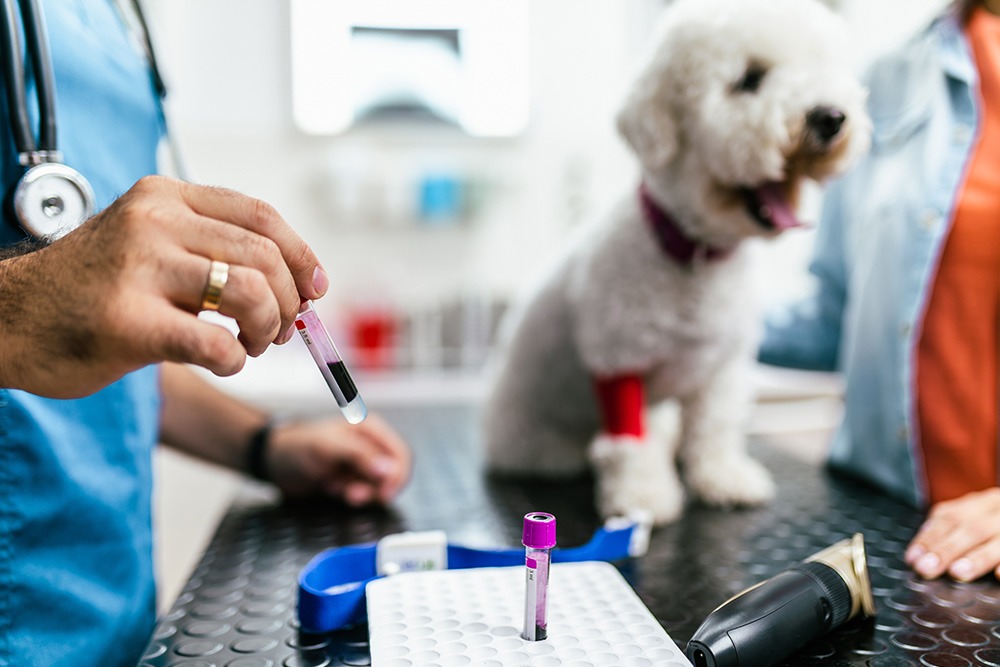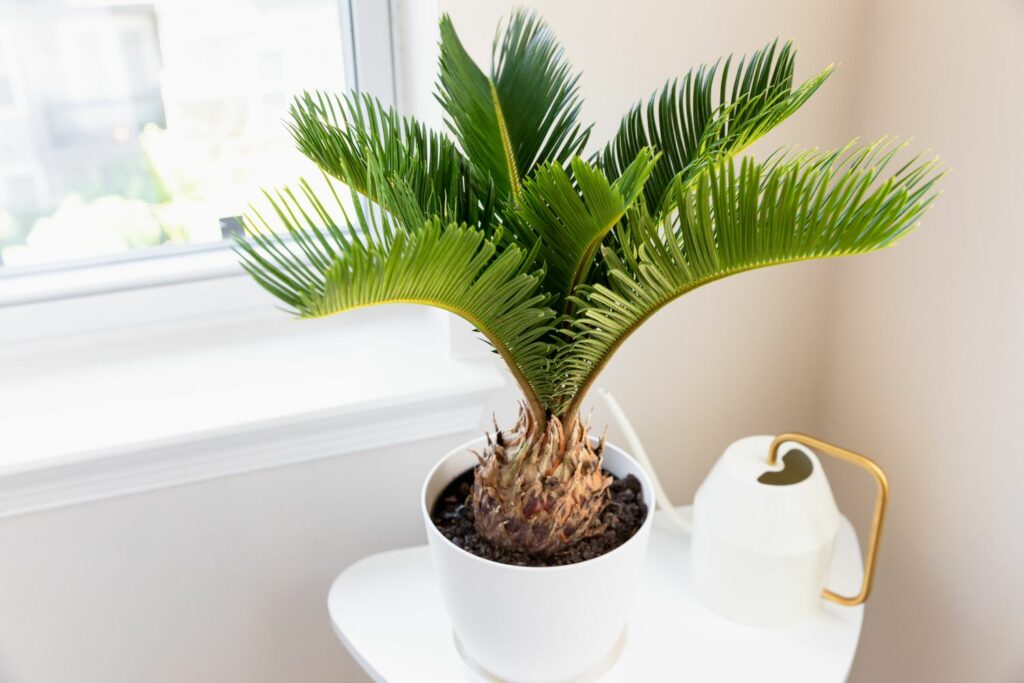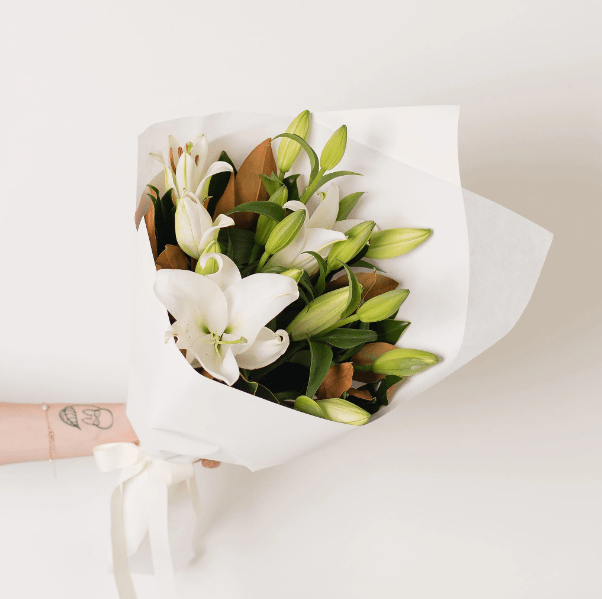Why Greyhounds Make Lovely Pets By Dr Kunal Nagaich Having had greyhounds in my life as pets and patients over the last 14 years, I like to think I know this breed quite well and that they make for...
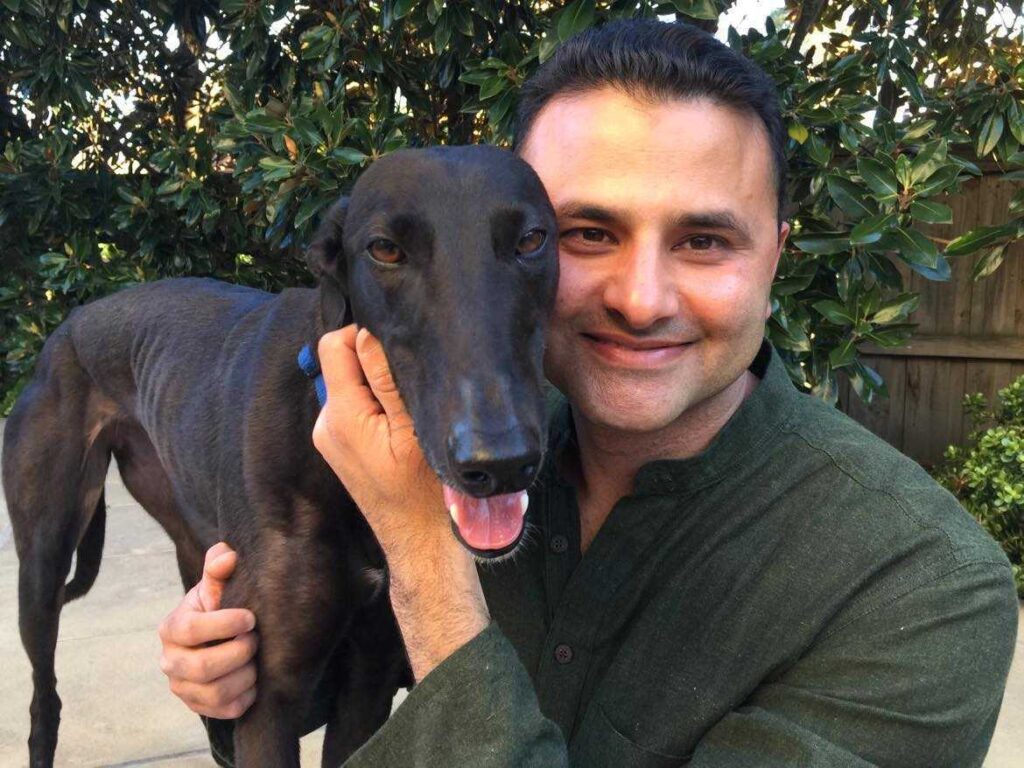
Why Greyhounds Make Lovely Pets
By Dr Kunal Nagaich
Having had greyhounds in my life as pets and patients over the last 14 years, I like to think I know this breed quite well and that they make for lovely pets and affectionate companions.
Like all breeds however, we cannot generalise as each dog is an individual and has its own quirks and peculiarities. Each pet greyhound should be matched carefully to the home and the lifestyle of their new potential owners. But what makes greyhounds so special?

Greyhounds are gentle giants with a beautiful personality.
Most pet greyhounds enter the pet world as ex or ‘failed’ racers. This means that they would have spent at least the first 18 months of their life in a kennel environment with intimate contact with humans, but not a lot of contact with other small dogs or animals.
The good trainers set their dogs up for success by socialising them with other dogs and even cats. This means when their dogs’ racing career is over, they are better suited to a life in a normal home with another dog that is not a greyhound. Having said this, a lot of trainers do not or are not able to do this. Given the puppyhood that these dogs have had it is a tribute to their gentle nature that within a matter of a few weeks they adapt to life in a home, life with other dogs and even children, so very well.

Greyhounds don’t bark much!
They just don’t! They are quiet creatures who love to sleep most of the time. Your neighbours are unlikely to complain that your greyhound barks or howls when you leave the home. I remember with our first greyhound, she barked for the first time almost a year into us having her and we were all so excited to hear her speak! There will always be an exception however but from my experience, there is often a reason behind a talkative greyhound. More often than not, that reason may be due to separation anxiety (which we will discuss in a separate blog). However, suffice it to say that greyhounds are very quiet in general.
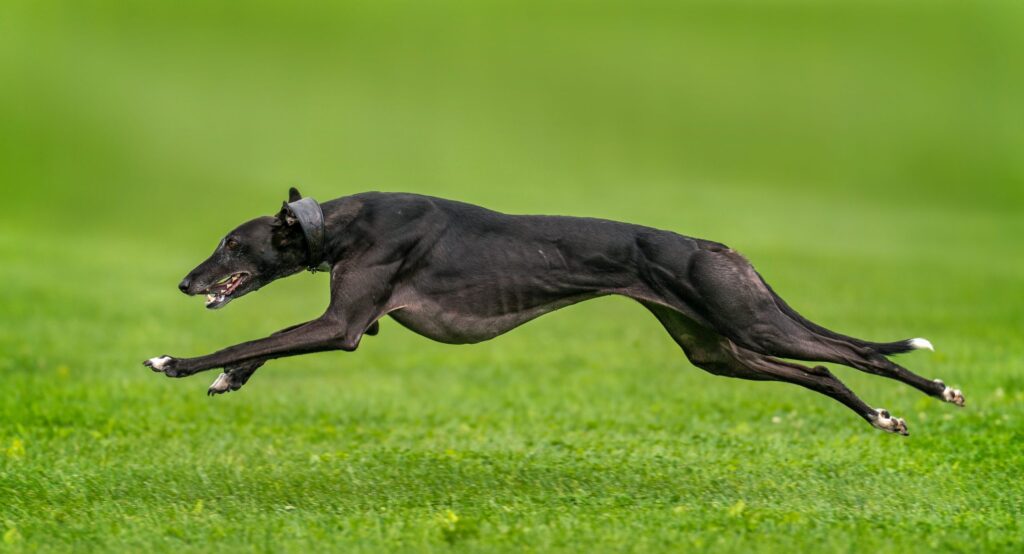
Greyhounds also do not need much exercise.
Believe it or not, that is the truth! They are quite lazy and will sleep most of the day.
They in general are not high energy dogs. They are affectionately called “40 mile-per-hour couch potatoes” for a good reason. They can run at 40 mph (or approx. 60km/hour) but their retired lifestyle is more sleeping than running.
For their health and wellbeing, they need just one, if not two small walks a day and then they will pretty much asleep the rest of the time. They are one of the few large dogs suitable to live in an apartment. Our first greyhound Aisha lived with us for two years in a small apartment in Southbank. She enjoyed her walks in Albert Park and when in the apartment, she pretty much slept all the time. We never felt from her behaviour that she was uncomfortable or unhappy in the apartment. As long as she got her walks, she was quite content.
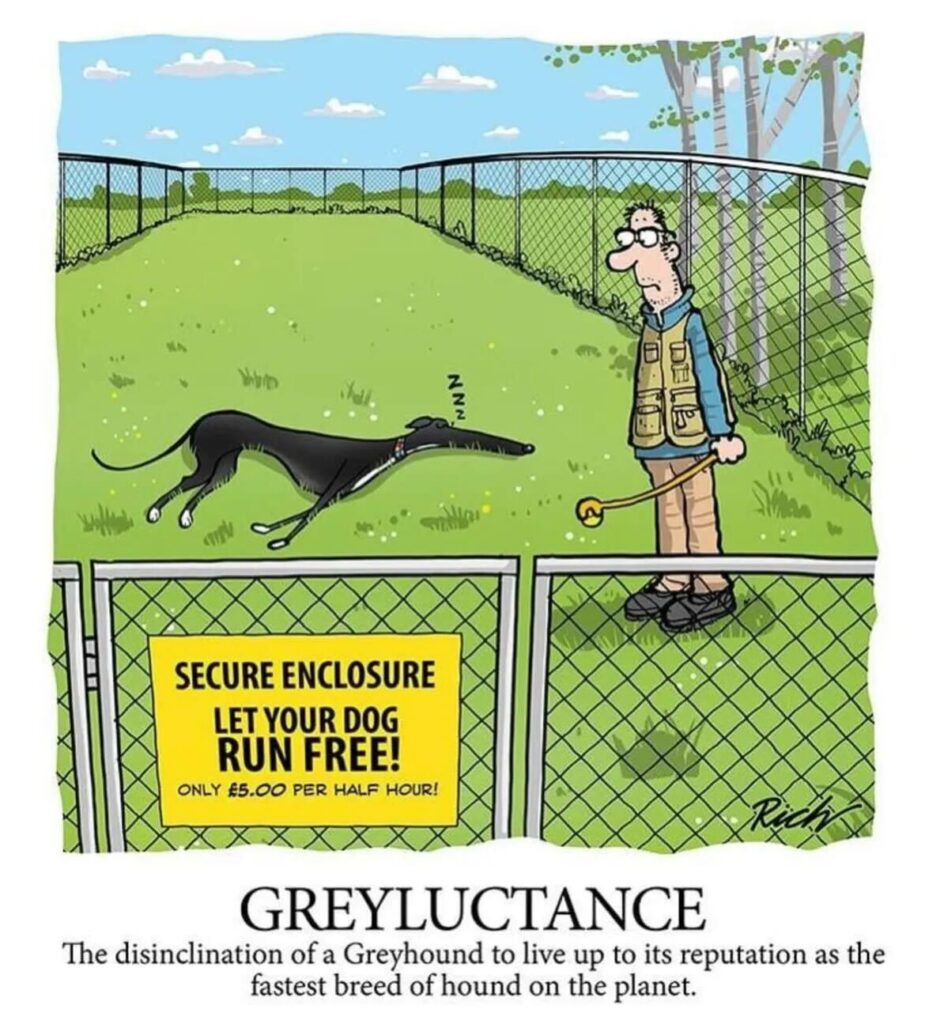
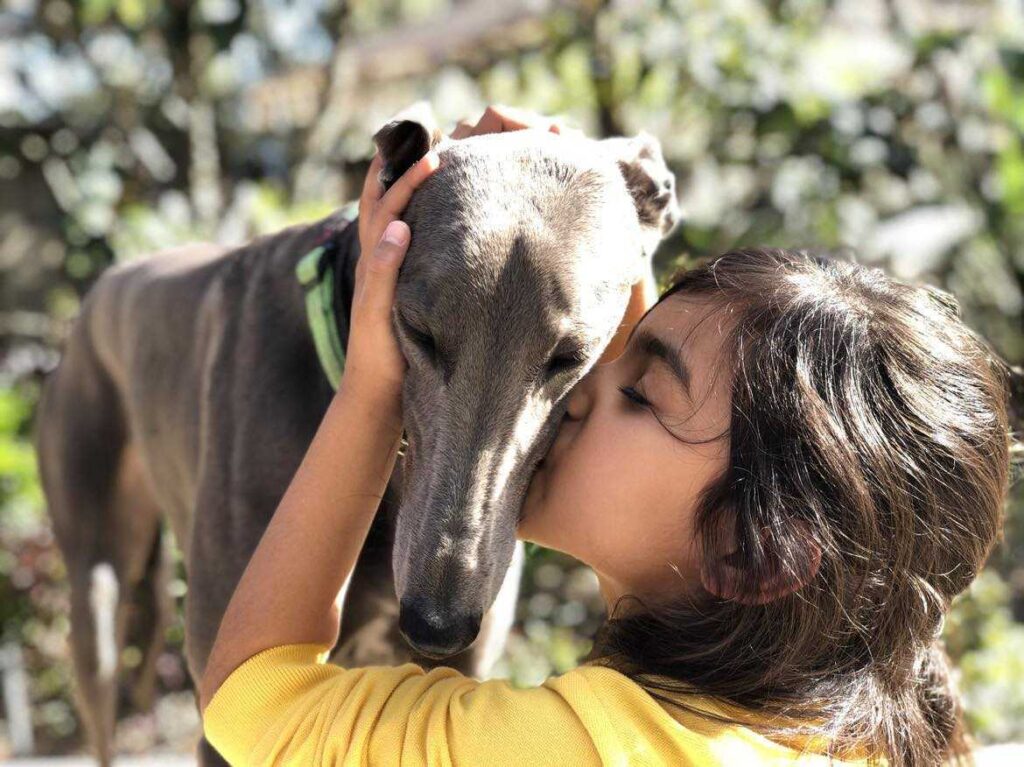
Greyhounds in general are people friendly.
This is because from the moment they are born they are handled regularly by the trainers and other people in the greyhound industry. Additionally, they are used to regular vet examinations and are quite cooperative with their veterinarians. As a result, you can rest assured that your dog is more likely to be friendly and tolerant towards new people, if not utterly affectionate, leaning for cuddles!
Greyhounds normally travel well.
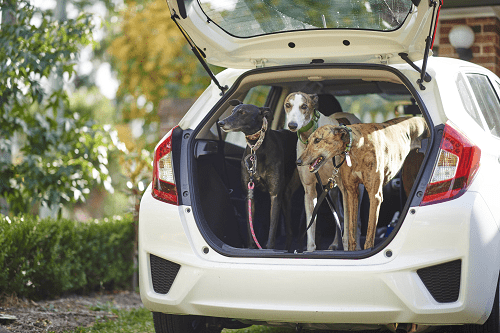
Since puppyhood, Greyhounds are transported in trailers back and forth from the racetracks and to their veterinarians. As a result, they are quite used to being in the boot of an SUV (or any comfortable moving vehicle) and do not get anxious. They tend to settle down very quickly on a comfy rug and doze off to sleep (yay, more time to sleep!).
Greyhounds are low maintenance dogs.
When they are in the clinic it is for one of a few conditions which we will discuss in a later article. We rarely see then in the clinic for the usual vomiting or diarrhoea, eye or ear infections, skin allergies etc. They are quite hardy and so if we can manage the few known conditions with them, they are quite easy on the wallet as well but I would still recommend pet insurance for when they get the zoomies! Greyhounds are notorious for doing silly things like tearing a nail or getting the odd cut from playing silly.
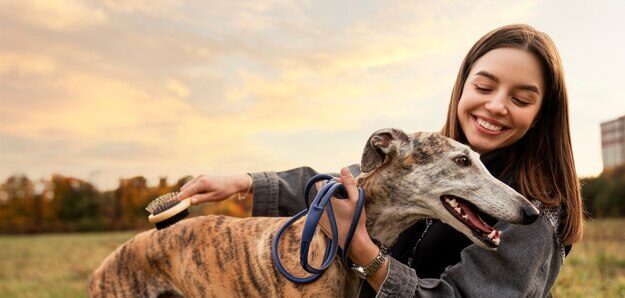
Avoid the drama and destruction of puppyhood!
Most greyhounds in Australia are ex racers and as such are only adopted out at about 18 months of age by which time they have been tried and not found successful at racing.
So, if you want a calm dog but don’t want to go through the excitement of puppyhood then greyhounds are a great option as by the time you get them, they would have gotten over the naughty puppy behaviours such as biting, toilet training & destroying things. The trainers have done the difficult job for you!
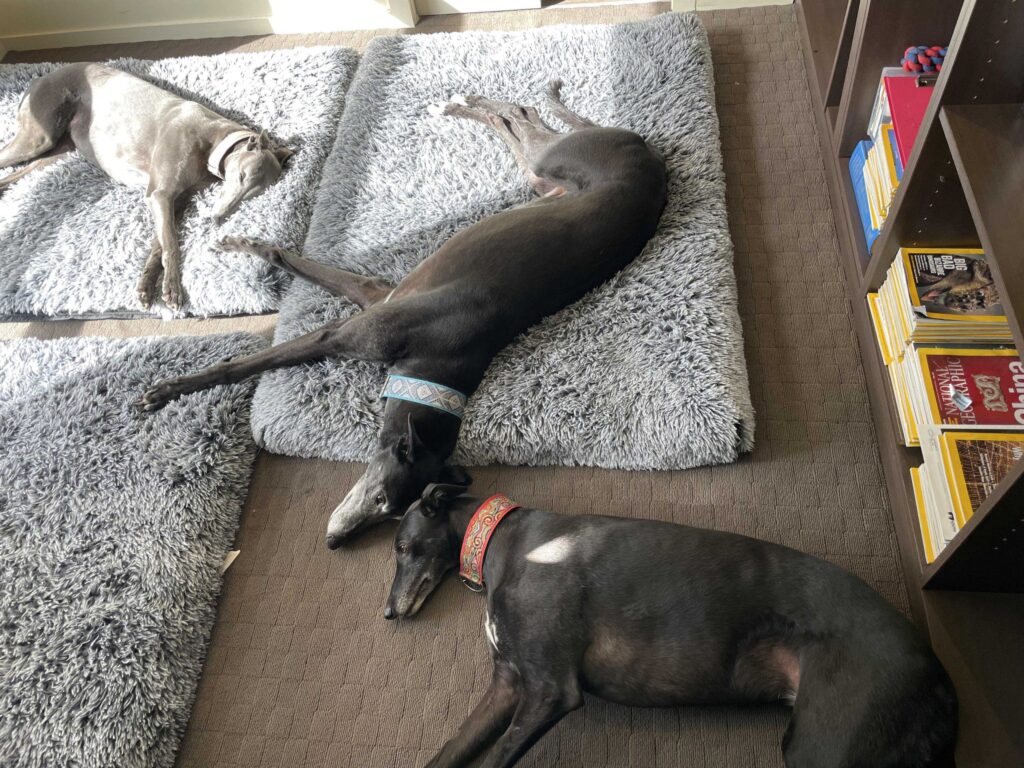
Quite, independent and intelligent!
Having spent a lot of time by themselves in kennel situations they are quite independent animals and may be mistaken for being aloof. However, that is incorrect, they love cuddles and affection and will reciprocate this in due time. It takes them a bit of time to come out of their shells; remember that by the time they have gotten to you, they have probably had about 3-4 different homes, from the trainer to the rescue to the foster carer and finally, hopefully their forever home.
It is beautiful to see them experiment with things and for their true personality to shine through. This process can take between a few weeks to a couple of years, but it is a pleasure to see their personalities flower with consistency, love and affection. Their independence means that you can leave them at home without worrying about how they will cope and if they will miss you or damage your home. There are always exceptions to this rule – the chief ones being greyhounds with anxiety, but again we will address this in another article.
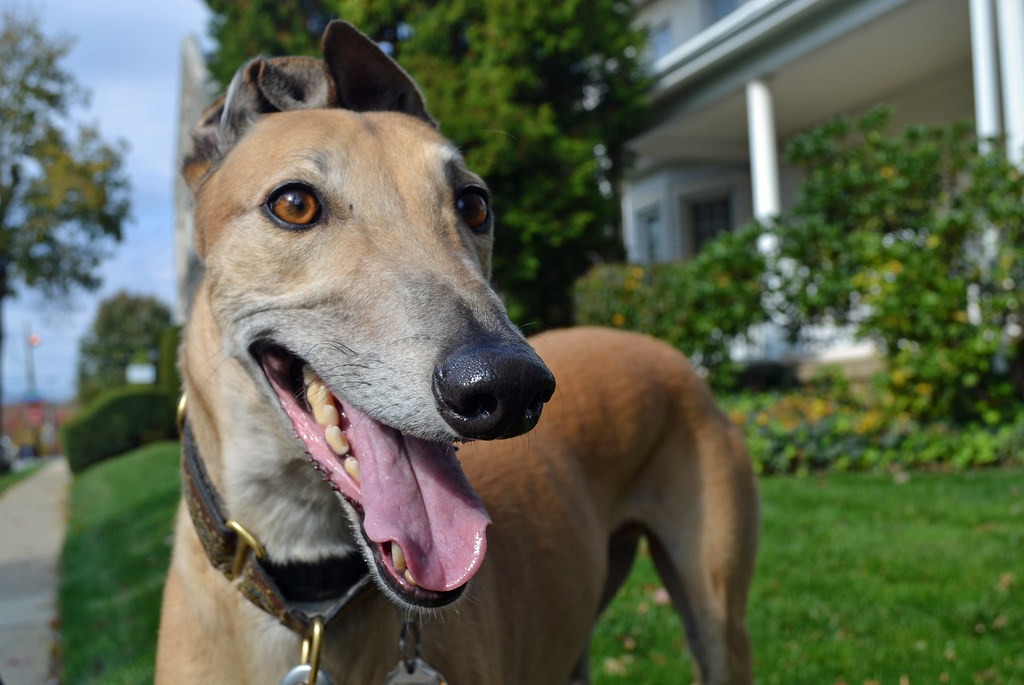
I love these dogs and would recommend a greyhound in a heartbeat! If you are thinking of adopting a greyhound, please give us a call at Lynbrook Vet or our sister clinic Berwick Clyde Vet and we will be more than happy to have a chat with you and answer any questions you might have to help you consider how to ‘match’ a greyhound with the right personality to your home and family.
In subsequent articles in this Greyhounds as Pets series, we will discuss the common medical conditions of greyhounds. Stay tuned!
The post Why Greyhounds Make Lovely Pets appeared first on Lynbrook Vet.






